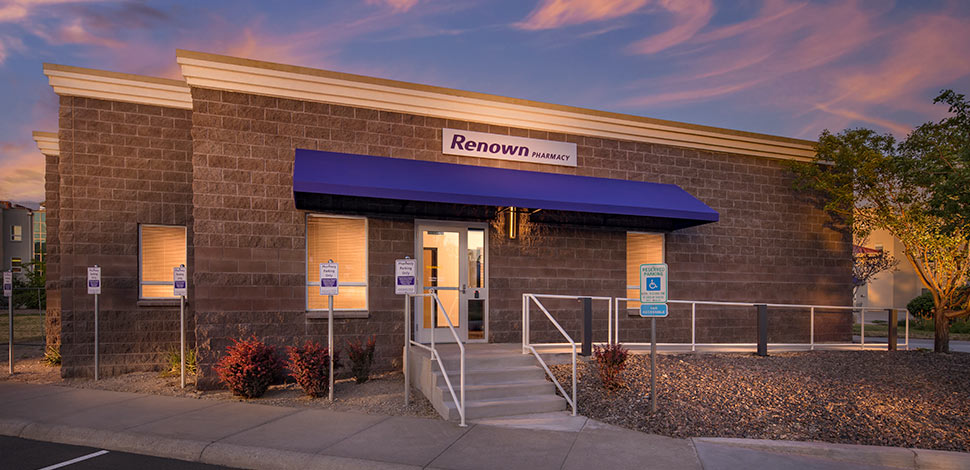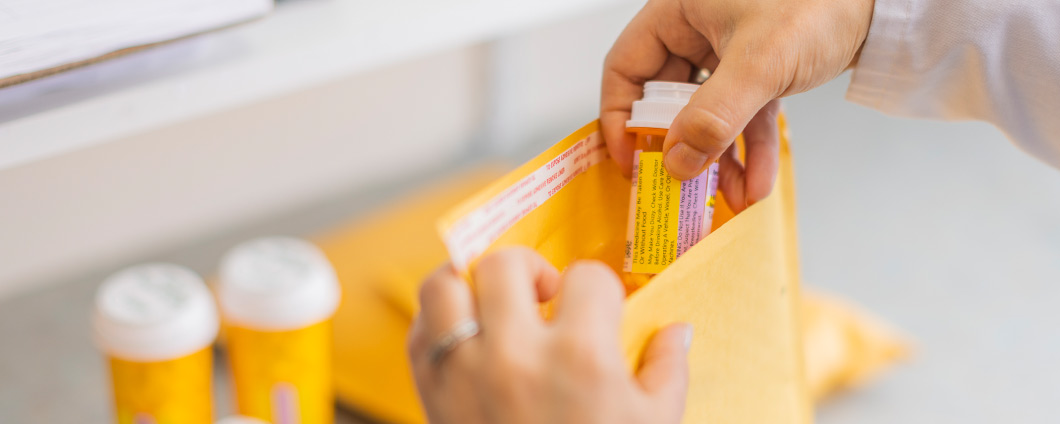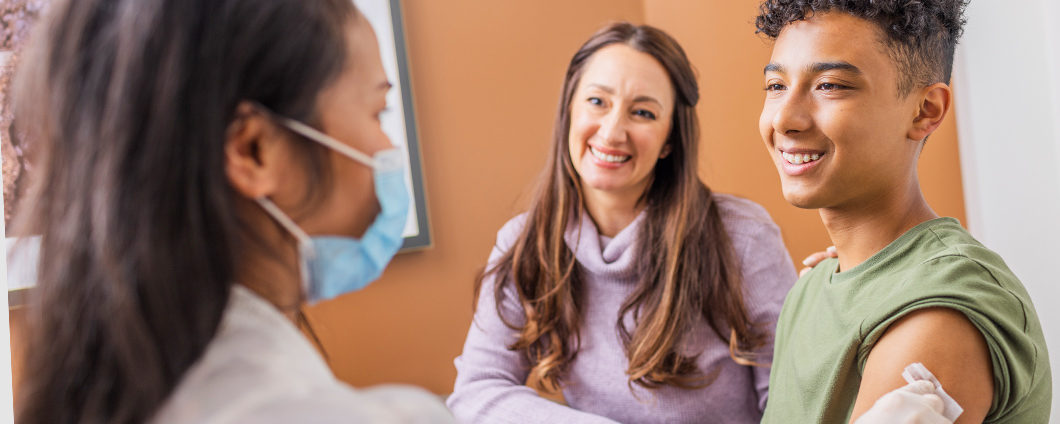Search
Results for 'forms'
Clear-
Name-Brand Medication vs. Generic: What's the Difference?
Most prescriptions meds are available in generic form. Find out the similarities and differences between the two and how to determine whether a generic is right for you. Approximately 80 percent of prescriptions sold today are generics. If you’re taking a prescription medication, chances are it’s a generic form of the brand-name drug. But are you getting the same quality in a generic medication? Do generics measure up? The answer in most cases is yes — generics, just like branded products, are regulated by the Food and Drug Administration. “To have a generic product approved by the FDA, the generic manufacturer must prove that its product is bioequivalent to the branded product,” explains Adam Porath, PharmD, BCPS AQ-Cardiology, BCACP and Vice President of Pharmacy Services. Basically, it has to function the same. “Generic products are extremely well tolerated and will provide the same results as using a branded product,” Porath says. Here’s how generics are the same as name-brand prescriptions: Generic products contain the same active ingredients. They produce the same desired clinical effect and accompanying side effects. Generics come in the same form as their branded counterparts: pill, liquid or inhaler, for example. Release into the bloodstream matches the name brand in timing and strength. Here’s how they differ: Generics generally cost less. Federal law requires generics have different names and look different: shape, size, markings and color. Generics contain different inactive ingredients, like binders, fillers and artificial colors. Different side effects with generics can usually be attributed to these additions. Why do generics cost less? When pharmaceutical companies develop a new drug, they are paying for research, development, clinical studies, marketing — in some cases it can cost more than $800 million and take 10 to 15 years to develop a new drug. “The manufacturers of branded medication products have to recoup their research and development costs,” Porath says. So companies are granted a limited patent to sell their drug without the competition of generic counterparts. “When patent exclusivity ends, the market is open for any generic manufacturer to make a competing product with FDA approval.” Without the same startup costs, companies can sell generics at 80 to 85 percent less. And because more than one company can produce the same generics, competition drives prices even lower.
Read More About Name-Brand Medication vs. Generic: What's the Difference?
-
Social Connections: Why They Benefit Your Health
Some days a chat with a friend is all you need to feel better. Why? Because humans are social beings. Although we have more technology than ever at our fingertips, sometimes we may still feel left out or disconnected. Dr. Buddy Coard, Ed.D., Psychologist at the Stacie Mathewson Behavioral Health Addiction Institute at Renown, discusses the importance of social connections and tips on how to keep connecting, warning signs of loneliness and how to feel less lonely. Why are Social Connections Important? Dr. Coard points to significant research on the topic of loneliness and social connections. He uses the findings below to detail how social connections affect our overall health. In a recent survey 40% of participants reported they sometimes or always feel that their relationships are not meaningful and that they feel isolated. Surprisingly, this survey suggests Generation Z (18-22 years old) is the loneliest generation. Another study associates loneliness as a risk factor for early death. It indicates lack of social connection heightens health risks as much as smoking 15 cigarettes a day, or having alcohol use disorder. In fact, loneliness and social isolation are twice as harmful to physical and mental health as obesity (Perspectives on Psychological Science, Vol. 10, No. 2, 2015). A 2018 study investigated several standard measures of social isolation, including marital status, frequency of religious service attendance, club meetings/group activities and number of close friends or relatives. The findings revealed race as a strong predictor of social isolation. In particular, black men and women were more likely to be lonely than were white men and women. Loneliness also switches on your body’s long-term “fight-or-flight” stress signaling system, which negatively affects your immune system. People who feel lonely have lower immunity and more inflammation than people who don’t. Dr. Coard recommends the following tips for those who feel lonely. Tips to Increase Social Connection Get outside. More and more nature prescriptions are common. In fact even a 10 minute walk can elevate your mood and get your blood flowing. Develop a schedule of activities to accomplish in a week, setting realistic goals. Monitor your technology. Of course, watching the 24/7 news cycle can be depressing. Turn off the TV and listen to music or read a book instead. Even better, use technology to connect with family members by having a virtual game night or book club discussion. Write it out. When was the last time you sent a good old-fashioned letter or card? Or even wrote in a journal? Try to brighten someone’s day with snail mail. Writing down your hopes and fears also helps you to get worries off your mind and process your emotions. With this in mind, there are also volunteer opportunities to support others by sending a handwritten letter to others battling depression. De-clutter your surroundings. Go through those old photos and put them in an album. Clean out a drawer, cupboard or closet. You will feel a sense of accomplishment and can donate items you no longer need that others can enjoy. Increase your joy by reducing your clutter. Warning Signs of Chronic Loneliness One size does not fit all when it comes to loneliness. For this reason, loneliness can be different depending on your particular situation and your unique personality. However, if you feel some (or all) of the following symptoms, chronic loneliness may be affecting you: Lack of ‘best’ or close friends. You connect with others on a surface level, but feel no one truly understands you. People are n your life, yet you are not connecting on a deep, intimate level with them. You feel lonely even when people are around. This means feeling disengaged or not part of the group when around others. You feel less than enough. You often doubt yourself or don’t feel good enough when comparing yourself to others. And social situations feel exhausting. What Can Someone Do to Feel Less Lonely? Dr. Coard offers the following suggestion for those with a lack of social connections: Talk with your doctor, psychologist or another healthcare professional. Sometimes chronic loneliness relates to longstanding negative beliefs that an individual has about themselves. Engage in behavioral activation. For example, being more active and involved in life by scheduling activities which can potentially improve your mood and decrease feelings of isolation. Initially behavioral activation can be very challenging due to lack of motivation, but setting a reasonable schedule of activities is a good start. Pay attention to your sleep. Sometimes when people become lonely they experience significant changes in their sleep cycle. Frequently they sleep too much, or too little. Make sure to maintain a normal, healthy sleep/wake cycle, following good sleep hygiene recommendations.
Read More About Social Connections: Why They Benefit Your Health
-
Reno Home to "Great Psychiatry and Mental Health Program;" Renown and UNR School of Medicine Named to Becker's National List
Becker’s list of Hospitals and Health Systems with Great Psychiatry and Mental Health Programs for 2023 has been published, recognizing professional healthcare leaders across the country. Renown Health and the University of Nevada, Reno School of Medicine have been recognized among the top programs in the United States. This acknowledgement reflects a commitment from a dedicated team of experienced local professionals providing comprehensive mental health services and advancing the field of psychiatry. In their announcement, Becker’s highlighted that, “In 2018, a $6 million donation (by the Stacie Mathewson Foundation), funded the creation of the Stacie Mathewson Behavioral Health & Addiction Institute at Renown Health. The institute was formed to address increased prescription drug-related mortality rates and suicide rates in northern Nevada. The department is now fully integrated with University of Nevada School of Medicine's psychiatry residency, child and adolescent psychiatry fellowship programs, and behavioral sciences and clinical psychiatry medical student training. The curriculum emphasizes the value of psychotherapy, psychopharmacology, and interventional psychiatry methods, along with primary care team integration.” Becker’s editors noted that, “Innovative public and private partnerships with the state include the SOAR early intervention treatment program for those experiencing their first episode of psychosis. A 24-hour crisis stabilization center will open in 2024 for adults with mental health or substance use issues. The Connect Washoe County mental health collaborative, part of the hospital’s community benefit program, hosts the Youth Mental Health Summit, with a number of interventions resulting in reduced use of street and prescription drugs, lower hospitalization rates due to opioid overdose, and fewer cases of intentional suicide mortality in youth.” “We are honored to be recognized as one of the top psychiatry and mental health programs in the U.S. This achievement reflects the dedication of our integrated team and our unwavering commitment to enhancing the lives of individuals and families affected by mental health challenges. We will continue to strive for excellence and address the diverse needs of individuals struggling with behavioral health issues, said Takesha Cooper, MD, Department Chair of Psychiatry and Behavioral Sciences. “Our team comprises skilled psychiatrists, psychologists, therapists and support staff who collaborate to provide holistic and integrated care for our patients. As the region’s only not-for-profit health system, together with the support of grateful donors like Stacie Mathewson, we will continue to actively engage in outreach initiatives to raise awareness about mental health, reduce stigma and create a community that fosters healing and support.” Renown Health also earned Forbes' Best Healthcare Employer in Nevada for combatting burnout and ensuring well-being and safety of caregivers. About Renown Health Renown Health is the region’s largest, locally governed, not-for-profit integrated healthcare network serving Nevada, Lake Tahoe and northeast California. With a diverse workforce of more than 7,000 employees, Renown has fostered a longstanding culture of excellence, determination and innovation. The organization comprises a trauma center, two acute care hospitals, a children’s hospital, a rehabilitation hospital, a medical group and urgent care network, and the locally owned not-for-profit insurance company, Hometown Health. For more information, visit renown.org. About the University of Nevada, Reno School of Medicine The University of Nevada, Reno School of Medicine (UNR Med), Nevada’s first public medical school, is a community-based, research-intensive medical school with a statewide vision for a healthy Nevada. Since 1969, UNR Med has trained more than 3,900 students, residents and fellows. UNR Med continues to improve the health and well-being of all Nevadans and their communities through excellence in student education, postgraduate training and clinical care, research with local, national and global impact and a culture of diversity and inclusion. For more information, visit med.unr.edu.
-
Renown Pharmacy Vaccinations
Pharmacy Vaccinations by Appointment The Renown Pharmacy team can order additional vaccines with advanced notice. Please call 775-982-7737 before scheduling to check on availability. Renown Pharmacy provides vaccinations by appointment for the following: COVID-19 Bivalent vaccine (Pfizer-BioNTech) Hepatitis B vaccine (HEPLISAV-B) Human Papillomavirus (HPV) vaccine (Gardasil 9) Influenza/Flu vaccine (High dose for 65+ and standard dose for those six months to 64 years) Measles, Mumps, Rubella (MMR) Meningococcal (meningitis) vaccine (Menactra) Meningococcal B vaccine (Trumenba) Monkeypox vaccine (JYNNEOS) Shingles vaccine (Shingrix) Pneumonia vaccine (Pneumovax23 and Prevnar 20) Tetanus, provided though the tetanus, diphtheria and pertussis (Tdap) booster (Adacel) You may request appointments for any of these vaccines within MyChart
-
 Renown Pharmacy - South MeadowsRenown Pharmacy - South MeadowsHours
Renown Pharmacy - South MeadowsRenown Pharmacy - South MeadowsHours
Mon-Fri8 a.m. - 5 p.m.Sat-SunClosed



